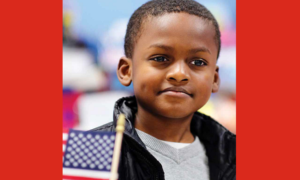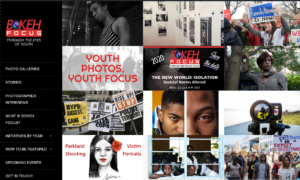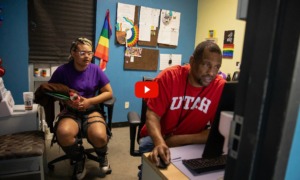Washington, D.C. — The Capitol Hill office of Vote Kids is not your typical youth advocacy headquarters, sporting warm-hearted mission statements and upbeat placards. Desks are littered with folders on close political races. A poster on the wall breaks down voting trends in Pennsylvania, home to one of Vote Kids’ main targets.
The leader of the group, youth work veteran Michael Petit, is excitable. He curses. He dislikes his adversaries.
The organization’s goal is not to help anyone win a campaign; it is to facilitate losses, namely among politicians whom Vote Kids believes have poor records on youth issues. This year, its main target is Sen. Rick Santorum (R-Pa.).
“This group is nothing more than a liberal front group,” says Virginia Davis, a spokeswoman for the Santorum campaign.
With so much at stake in the November elections – including which political party controls Congress – advocacy organizations around the country are trying to make youth issues a factor. Their tactics include posting candidates’ answers to youth policy questions on a website based in Arizona and dispatching people to ask youth policy questions at candidate forums in Florida.
But no group appears as aggressive as Vote Kids. That’s because while most youth advocacy organizations are constrained in political action by the rules governing 501(c)3 nonprofits, Vote Kids – a “527” nonprofit – employs the kind of hard-line tactics few advocates have tried.
Petit opened Vote Kids in 2001 when he left his job as deputy director of the Child Welfare League of America. The group’s 527 status – named after a section of the federal tax code – allows it to raise unlimited funds, but limits Vote Kids to informing voters on specific issues and where certain candidates stand on them.
The organization’s first big success came in the 2004 congressional election in Texas’ 17th District, which had been redrawn by Republicans to include mostly GOP voters and therefore favor GOP candidates. Vote Kids spent $50,000 publicizing the youth policy record of Republican candidate Arlene Wohlgemuth, saying she had authored legislation to cut $1 billion from child and family services. (See “Blueprint for Political Action?,” May 2005).
Rep. Chet Edwards, the Democratic incumbent, won the race by 54 percentage points. A poll commissioned by Vote Kids concluded that “kids issues” accounted for 11 percent of the difference in the election.
Today’s Target
So far, Vote Kids’ only campaign for this fall is against Santorum, who is fighting for his congressional life against popular Democrat Bob Casey. Vote Kids’ work on that race is supported primarily by the National Association of Social Workers (NASW), a D.C.-based membership organization that worked with Vote Kids on the Texas campaign.
Petit saw Santorum as a natural target in the mold of Wohlgemuth: a candidate who campaigns as a family champion, but whose record, Petit believes, depicts the opposite.
“Family Values? Rick Santorum Says One Thing But Votes Another,” reads a mailing from Vote Kids. The flyer features a photo of a distraught-looking girl – the same photo used in the campaign against Wohlgemuth.
Petit excitedly ticks off the other tools he plans to use in order to paint Santorum as anti-youth: “Direct mail, radio buys, a press event, voter registration drives, and website and e-mail content.”
Vote Kids has begun e-mailing residents on its own mailing list and on NASW’s, and will hire a direct marketing firm to bolster the e-mail campaigns. Postal mailings will begin next month, according to campaigns and communication coordinator Jason Epstein.
Petit says Vote Kids’ expenditures on the campaign have reached “the six-figures area,” and “we could possibly spend more.” NASW’s political action committee has contributed $25,000, according to Ikeita Cantu Hinojos, the association’s director of government relations and political actions.
Davis, the Santorum spokeswoman, refutes the notion that he’s been poor on children’s issues. She cites his support for: increased funding for the Individuals with Disabilities Act; KIDS Accounts, which provide small savings accounts for low- and middle-income children; Aimee’s Law, which seeks to protect children from violent criminals; and the Project Safe Child Act, designed to combat child predators on the Internet.
Davis said in an e-mail that the project between NASW and Vote Kids is “in violation of federal campaign finance laws,” and that the Santorum campaign plans legal action against it.
“We believe that 100 percent of our activities are legal, and we’re not going to be bullied,” Petit says.
Whether Vote Kids engages in other races depends largely on whether Petit can find financial backing. While the organization is bipartisan by definition, it’s clear what Vote Kids would like to see more of in next year’s Congress: The other candidates it’s considering are all incumbent Republicans.
Contact: Vote Kids (202) 393-0504, www.votekids.org; Santorum campaign (877) 868-3742, www.ricksantorum.com. For information on nonprofit lobbying, contact the Center for Lobbying in the Public Interest at (202) 387-5048, www.clpi.org.






























